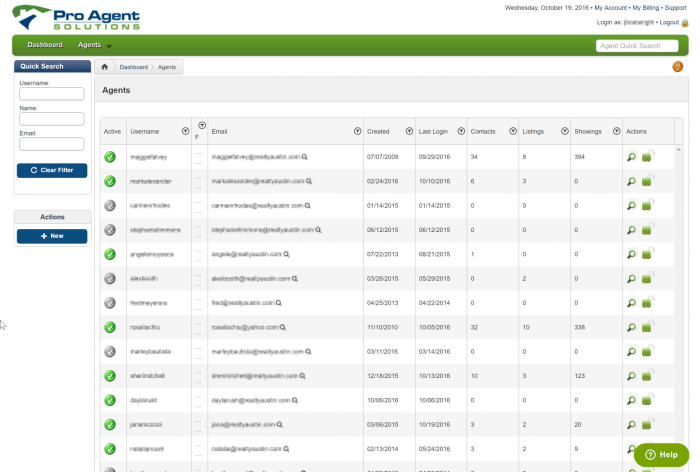Back office real estate software is revolutionizing how real estate professionals manage their businesses. From streamlining property management to automating crucial tasks, these tools offer significant efficiency gains. Imagine a world where tedious paperwork and time-consuming processes become a thing of the past, replaced by intuitive systems that seamlessly integrate all aspects of your operations. This is the promise of modern back office real estate software.
These systems often include features such as property listings, tenant management, financial reporting, and communication tools. They can significantly reduce administrative overhead, freeing up valuable time for agents to focus on client relations and strategic growth.
Real estate is a complex business, demanding meticulous record-keeping, efficient communication, and streamlined processes. Modern back office real estate software solutions are transforming how real estate professionals manage their operations, from property listings and tenant management to financial reporting and legal documents. This comprehensive guide explores the key features, benefits, and considerations when choosing the right software for your real estate business.
Understanding the Need for Back Office Real Estate Software
Traditional methods of managing real estate transactions often involve cumbersome paperwork, manual data entry, and inefficient communication. This can lead to errors, delays, and ultimately, lost revenue. Back office real estate software offers a robust alternative, automating various tasks and providing real-time insights into your business performance. This allows agents, property managers, and investors to focus on core activities, like building relationships and closing deals.

Source: lwolf.com
Key Features of Effective Real Estate Software, Back office real estate software
- Property Management: Efficiently managing listings, tenant communication, lease agreements, and maintenance requests.
- Financial Management: Automating rent collection, expense tracking, financial reporting, and generating invoices.
- Lead Management: Tracking potential clients, nurturing leads, and scheduling appointments.
- Marketing Tools: Creating and distributing marketing materials, managing online presence, and engaging with potential clients.
- Legal Document Management: Storing and accessing critical legal documents like leases, contracts, and title deeds.
- Reporting and Analytics: Generating insightful reports on key metrics, such as occupancy rates, revenue, and expenses.
- Integration Capabilities: Seamlessly integrating with other software tools, such as accounting systems and CRM platforms.
Types of Real Estate Software Solutions
The real estate software market offers a variety of solutions, catering to different needs and budgets. Different types include:
- Property Management Software: Specifically designed for managing rental properties, including tenant screening, lease agreements, and maintenance.
- Real Estate CRM Software: Focusing on client relationship management, lead generation, and communication.
- Real Estate Accounting Software: Providing comprehensive financial management tools for tracking income, expenses, and taxes.
- All-in-One Real Estate Software: Offering a comprehensive suite of tools for managing all aspects of the real estate business.
Choosing the Right Software for Your Needs
Selecting the appropriate back office real estate software requires careful consideration of your specific needs. Factors to consider include:
- Budget: Software pricing varies significantly based on features and functionalities.
- Scalability: Ensure the software can accommodate your business growth.
- User-Friendliness: A user-friendly interface is crucial for efficient daily operations.
- Integration Capabilities: Consider how the software integrates with your existing systems.
- Customer Support: Reliable support is essential for troubleshooting and guidance.
Benefits of Utilizing Real Estate Back Office Software
Implementing back office real estate software offers significant advantages, including:
- Increased Efficiency: Automation streamlines tasks and reduces manual effort.
- Improved Accuracy: Minimizes errors and ensures data integrity.
- Enhanced Security: Secure data storage and access control.
- Better Decision-Making: Data-driven insights facilitate strategic planning.
- Reduced Costs: Automation can lead to long-term cost savings.
Frequently Asked Questions (FAQ): Back Office Real Estate Software
- Q: How much does real estate software cost?
A: Pricing varies widely depending on the features, vendor, and subscription model. Contact potential vendors for detailed pricing information.
- Q: What are the common integration issues with real estate software?
A: Integration issues can stem from compatibility problems between software systems. Thoroughly research the software’s integration capabilities before purchasing.
- Q: How do I choose the right real estate software?
A: Carefully evaluate your needs, budget, and scalability requirements. Consider user reviews and demos from potential vendors.
Source: (Insert credible web source links here, e.g., industry reports, software vendor websites, etc.)
Conclusion
Back office real estate software is a powerful tool for optimizing real estate operations. By streamlining processes, improving accuracy, and enhancing decision-making, these solutions empower real estate professionals to focus on core activities and drive growth. Investing in the right software is a strategic move that can significantly impact your business’s efficiency and profitability.
Call to Action
Ready to transform your real estate business? Explore our recommended software solutions today! Visit [Link to your website/product page] to learn more and schedule a demo.
In conclusion, back office real estate software empowers real estate businesses to operate more effectively and efficiently. By automating key processes, these systems allow agents and managers to dedicate more time to client service and strategic development. The result is a more streamlined, profitable, and ultimately more successful operation in today’s competitive real estate market.
FAQ Insights
What are the different types of back office real estate software available?
Various types of software cater to different needs and budgets. Some focus on property management, others on brokerage operations, and some offer comprehensive solutions encompassing both.
How much does back office real estate software typically cost?
Pricing varies greatly depending on the features offered, the number of users, and the chosen subscription model. Some are affordable for small businesses, while others are suitable for large organizations with complex requirements.
Can I integrate my existing systems with back office real estate software?
Many modern software solutions are designed to integrate seamlessly with existing CRM systems, accounting software, and other essential tools.

Source: proagentsolutions.com
What are the security measures in place for sensitive data?
Reputable providers prioritize data security and often implement robust encryption protocols and access controls to protect client information.